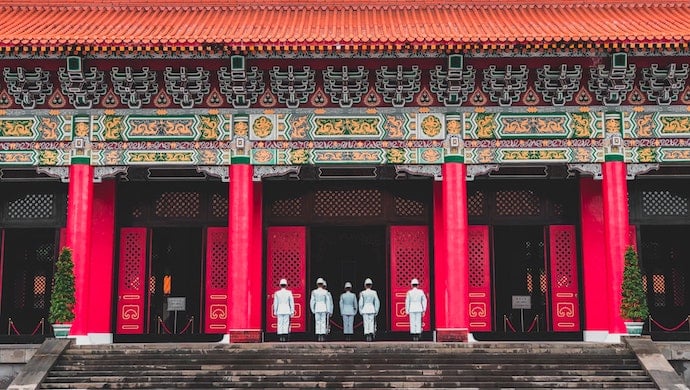
2021 may become a significant year for the Asian investment market as foreign hedge funds and individual investors alike appear to be tapping into the early pandemic recovery across the east whilst stepping away from overvalued US assets.
Although this trend appears to be largely driven by the fallout of the COVID-19 pandemic, there are indications that the shift towards Asia has been occurring at a somewhat slower pace long before the arrival of the virus.
The recent GameStop saga that saw hedge funds come into direct competition with retail investors may ultimately prove to contribute to the outflow of investment.
Hedge fund havens in Asia
According to a Credit Suisse Group AG survey of over 200 institutional investors with US$812 billion in hedge fund assets, Asia-Pacific was the most sought after region with 55 per cent net demand– the highest figures in over a decade.
In comparison, the demand for North American markets was 20 per cent. These figures measure the share of investors aiming to raise allocations minus those planning to trim. Speaking to Bloomberg, Richard Johnston, Asia head at Albourne Partners in Hong Kong said: “This year we are going to see strong net inflows based on our conversations. The areas we are seeing the most demand for are China equities, low-net hedge funds and private credit.”
This significant investment shift could help to foster growth in Asia’s relatively small hedge fund industry that’s centred heavily in Hong Kong and Singapore. Investors worldwide are looking for ways to profit from the region’s economic growth, and Asia hedge funds have outperformed their global counterparts.
The total assets under management by Asia Pacific hedge funds have also risen by 20 per cent in the past year to US$155.6 billion, and there may be stronger inflows across 2021.
This surge in monetary and fiscal stimulus in North America and Europe could also push some investors to move their money to Asian investment markets and bypassing the difficult US markets. Regulatory changes have also made it easier for hedge funds to invest in China, which is playing a role in boosting demand.
Riding the wave of foreign capital
Asian stock markets, including the Stock Exchange of Thailand (SET) are seeing an emerging theme of increasing foreign funds as investors move away from low-yield 10-year bonds because of signs of increasing inflation.
Foreign fund inflows are expected to significantly benefit large-cap stocks as foreign investors prefer stocks with high liquidity. Although analysts are waiting for more concrete signs of inflows before adjusting 2021’s SET Index target.

Image: Bangkok Post
Here, we can see that the Asian investment markets that are drawing foreign interest extend way beyond that of China, with markets in Indonesia, Taiwan and Thailand all reporting positive net trading value for foreign shares in recent months. This has driven the Asian stock market year-to-date returns to higher levels than those of European and US equivalents.
The individual investor boom
The appeal of Asian investment markets has extended to individual investors, with many using the downtime created by the pandemic to invest in stocks for the first time.
Stock trading has surged across Asia, as markets have emerged from the other side of the COVID-19 pandemic. Activity on the continent’s two largest stock markets in Shanghai and Shenzhen has risen towards levels that haven’t been seen since China’s 2014 and 2015 boom.
Also Read: In June, startup investment in Southeast Asia continued to weather the storm
While trading on exchanges in Seoul and Hong Kong has also broken records. Shares are also changing hands in significant numbers in Taiwan, India and even smaller markets like Indonesia and Vietnam.
According to Herald van der Linde, head of Asia Pacific equity strategy at HSBC, companies “have seen armies of Asia retail investors appear and invest in sizes that are mind-boggling, both in terms of trading volumes and the value of shares traded.”

Image: FT
Amidst the widespread appeal of new frontiers for first-time investors is the significant growth in IPO proceeds over the past year – with Asian initial public offering proceeds rising to their second-highest levels since the turn of the century.
Much like investment apps which are becoming increasingly accessible for individual investors, so too are platforms in which users can buy into IPOs.
Platforms such as the Nasdaq-listed Freedom Holding Corp. (NASDAQ: FRHC) has a platform – Freedom24, which enables retail investors to not only buy stocks but also actively participate in IPOs that may otherwise be restricted to institutional investors only. Although with this said, there’s an application process attached and a financial threshold of $2,000 to reach.
Alternatively, other more traditional platforms like Fidelity and TD Ameritrade enable the general public to also participate in selected IPOs– however, the account value threshold starts at US$100,000 and US$250,000 respectively.
Although the pandemic has caused a heavy level of disruption to investment markets around the world, Asia appears to be profiting from a swift recovery from COVID-19 to win over a level of foreign interest that has seldom been seen before.
If this momentum continues in the wake of a challenging time for the dollar, we may be witnessing the start of an especially prosperous period for the Orient.
–
Editor’s note: e27 aims to foster thought leadership by publishing contributions from the community. Become a thought leader in the community and share your opinions or ideas and earn a byline by submitting a post.
Join our e27 Telegram group, FB community or like the e27 Facebook page
Image credit: Celine Lityo on Unsplash
The post The lure of the orient: How retail investors are being drawn to Asian investment markets appeared first on e27.

